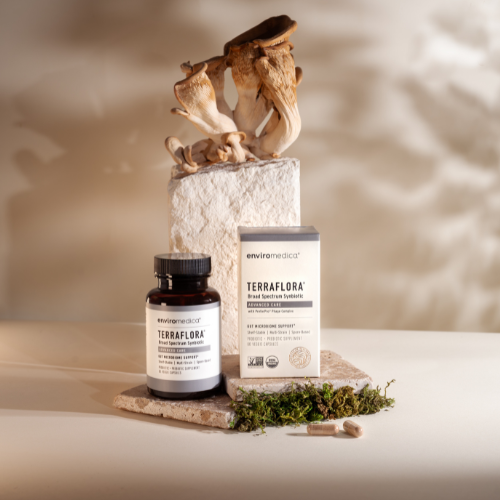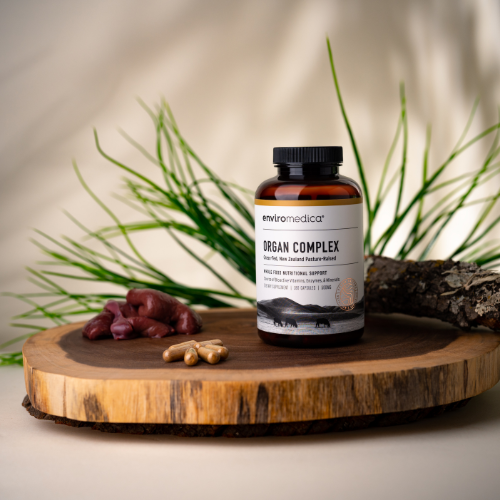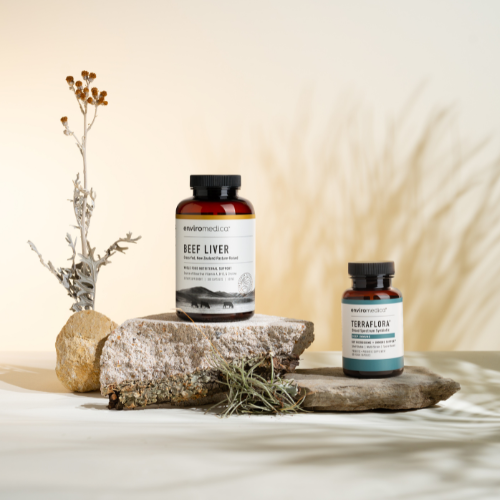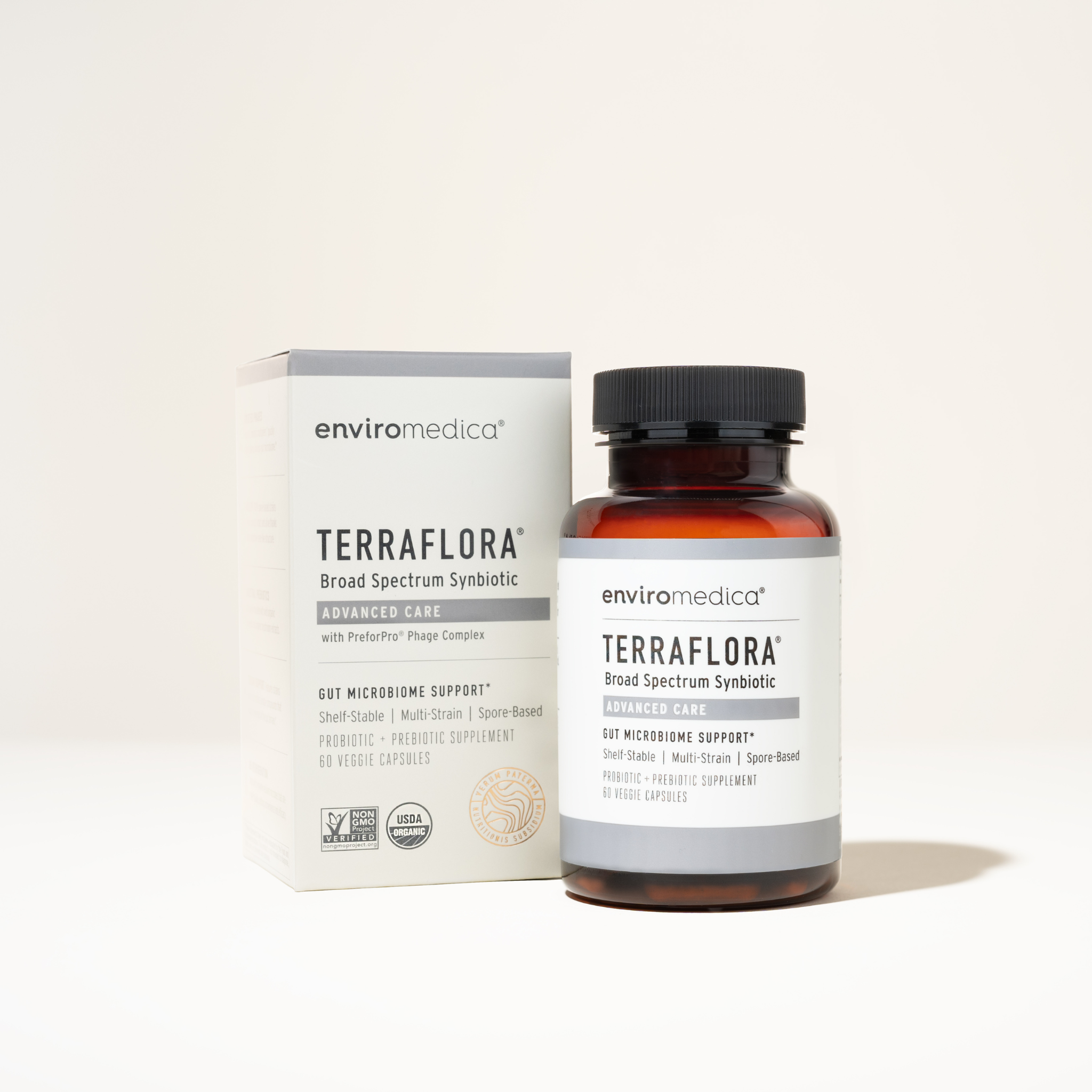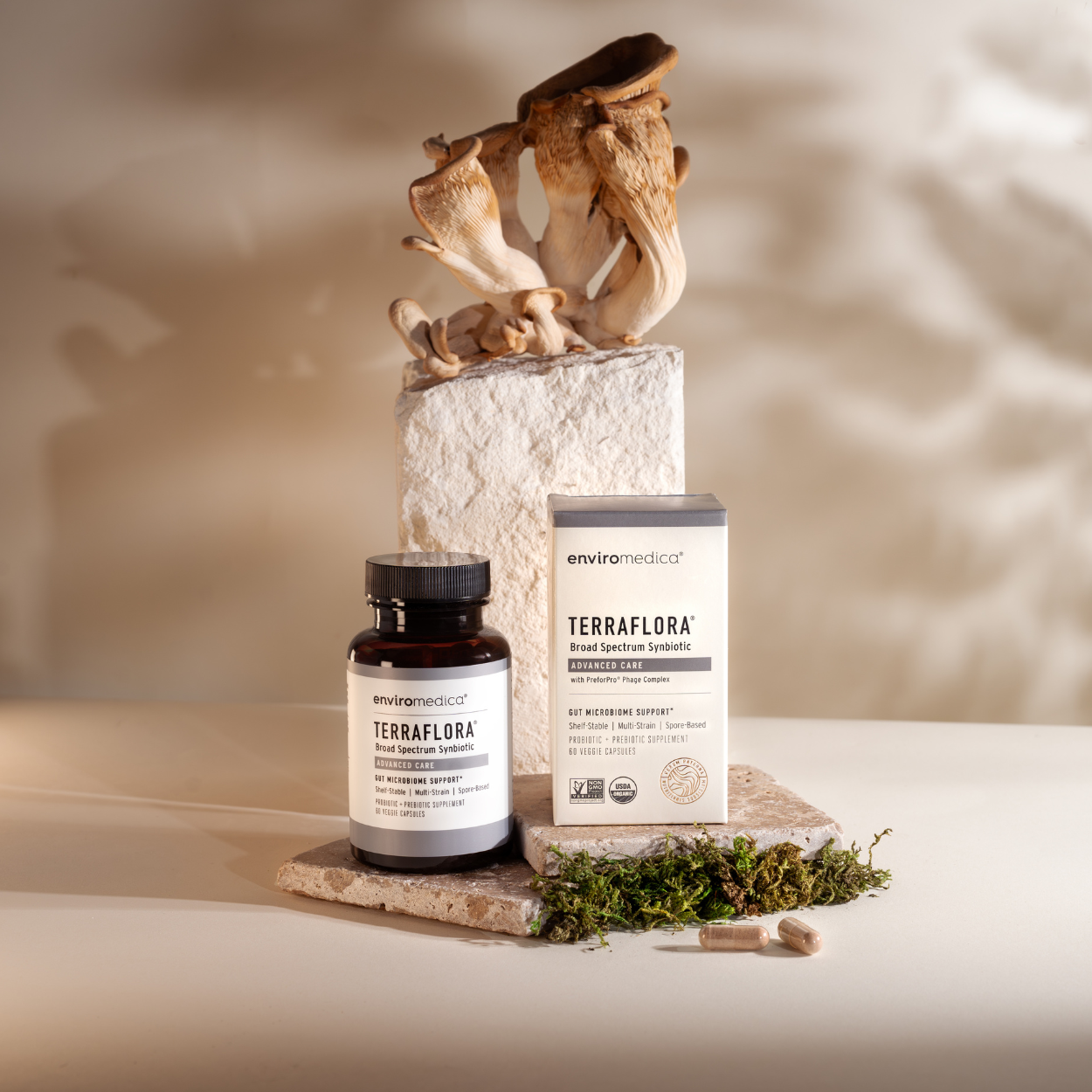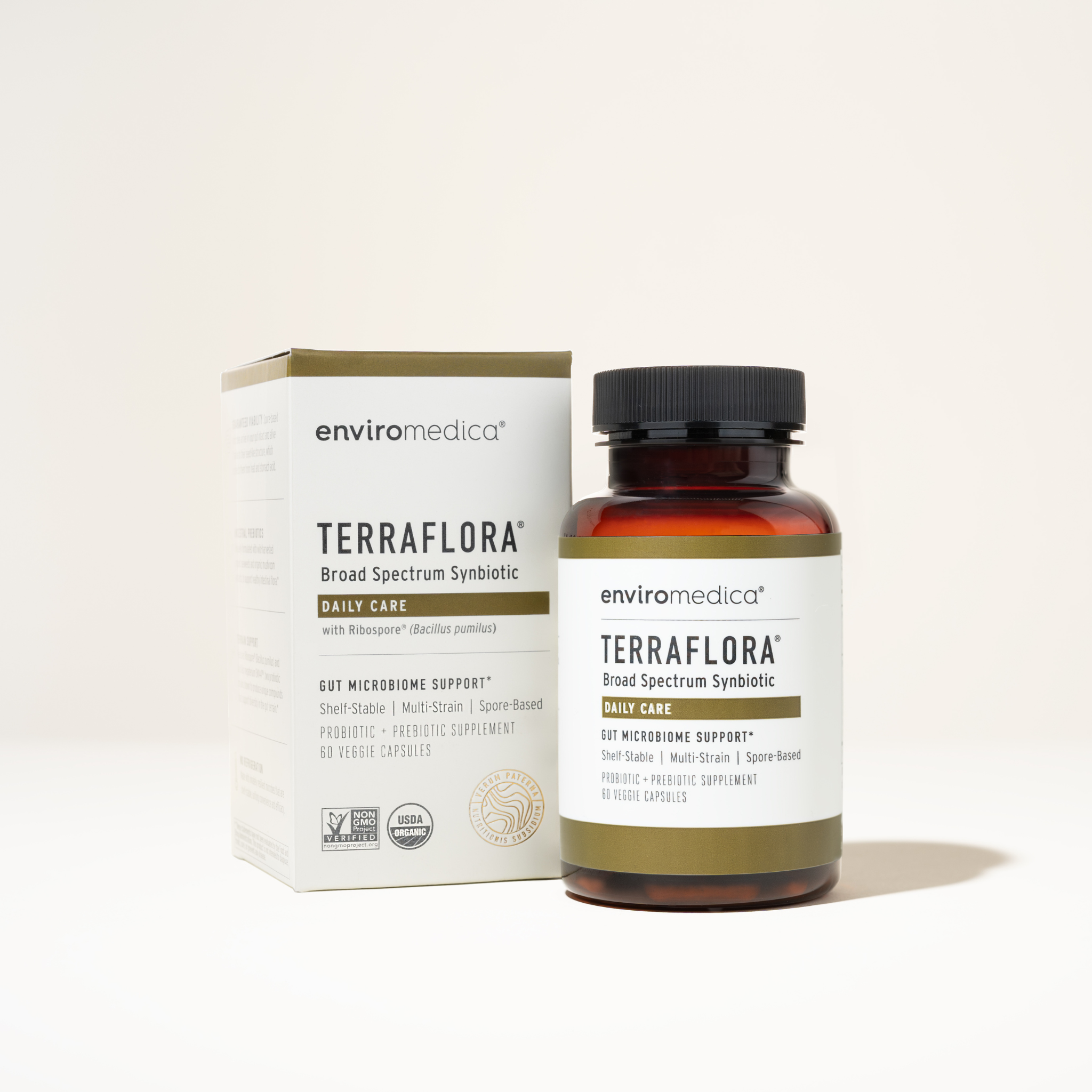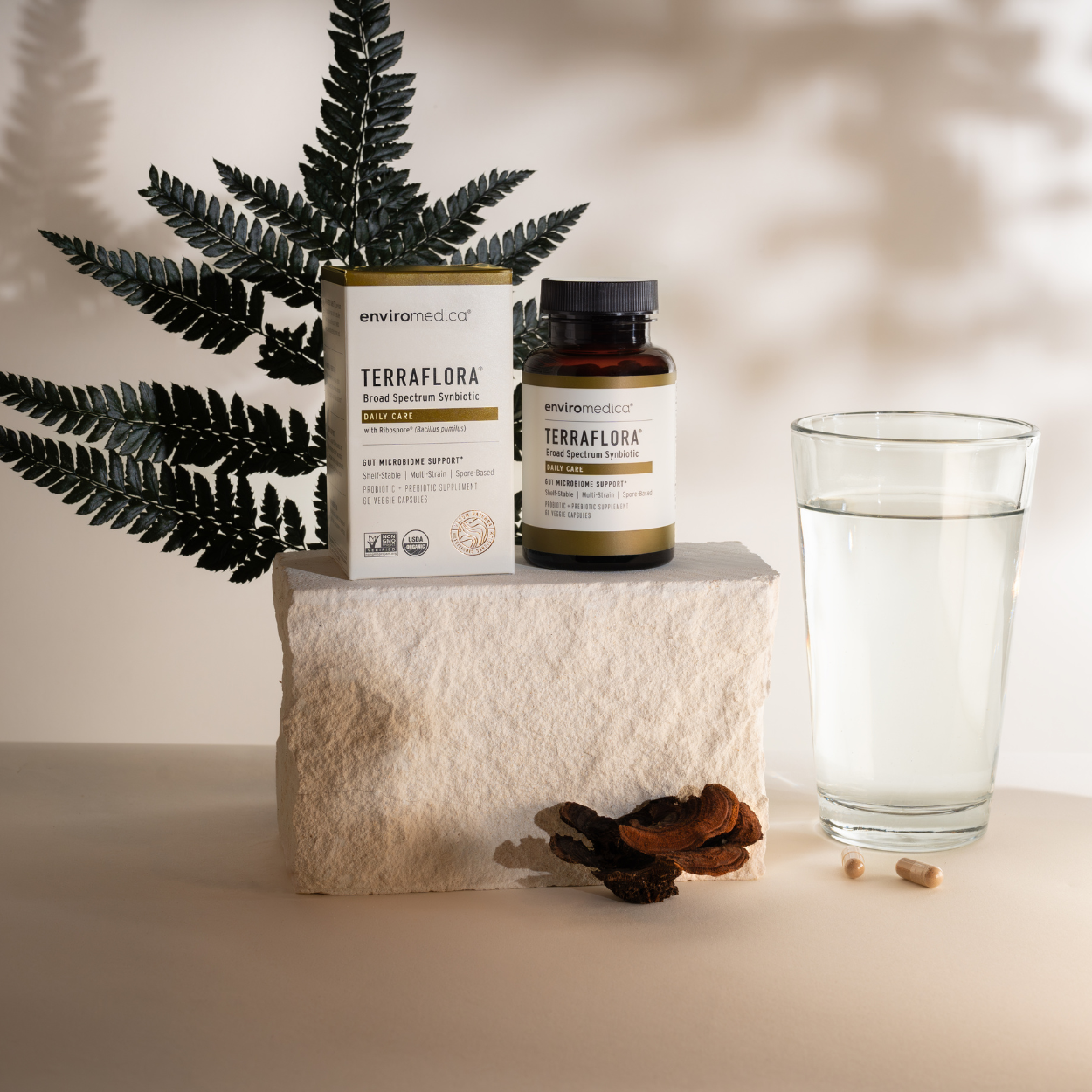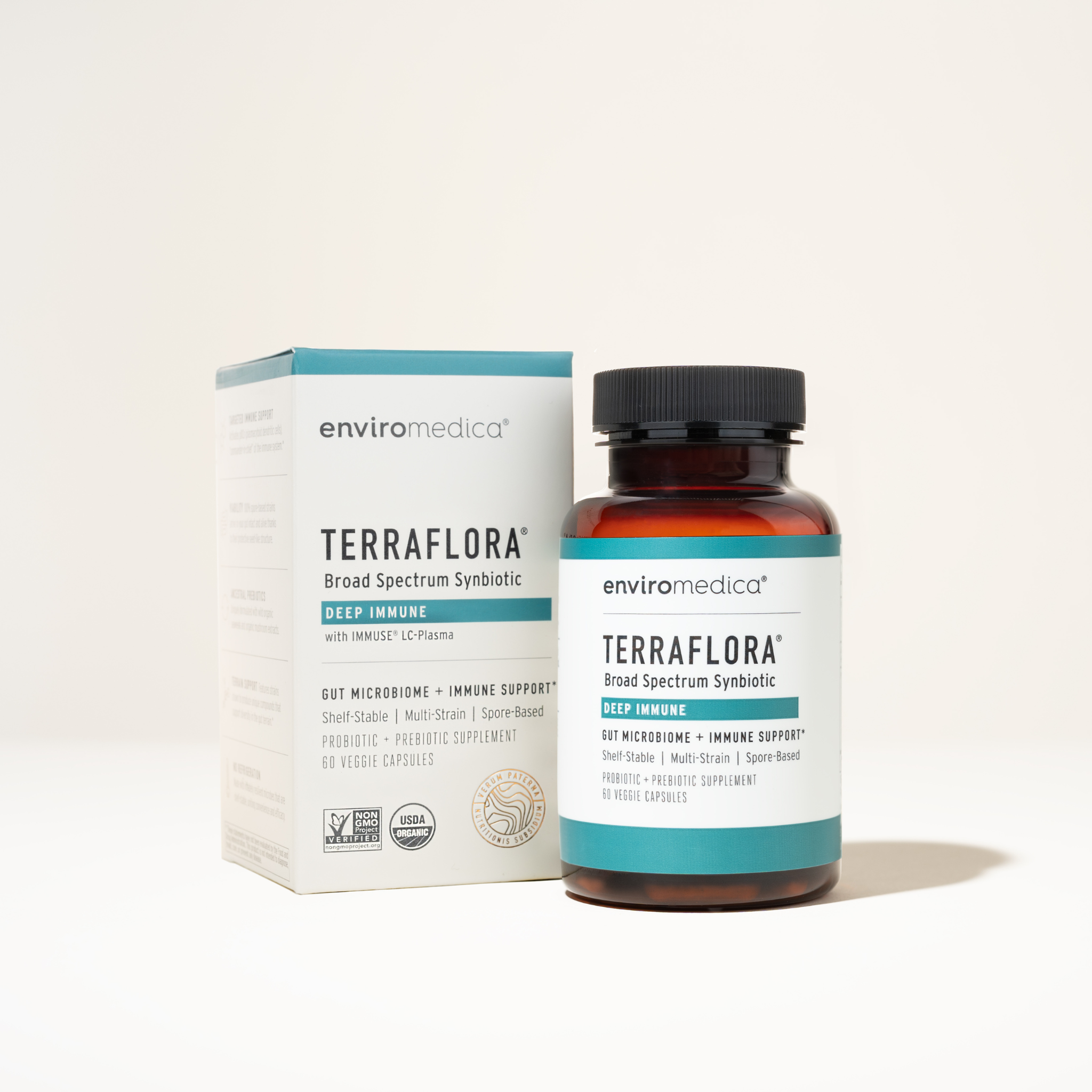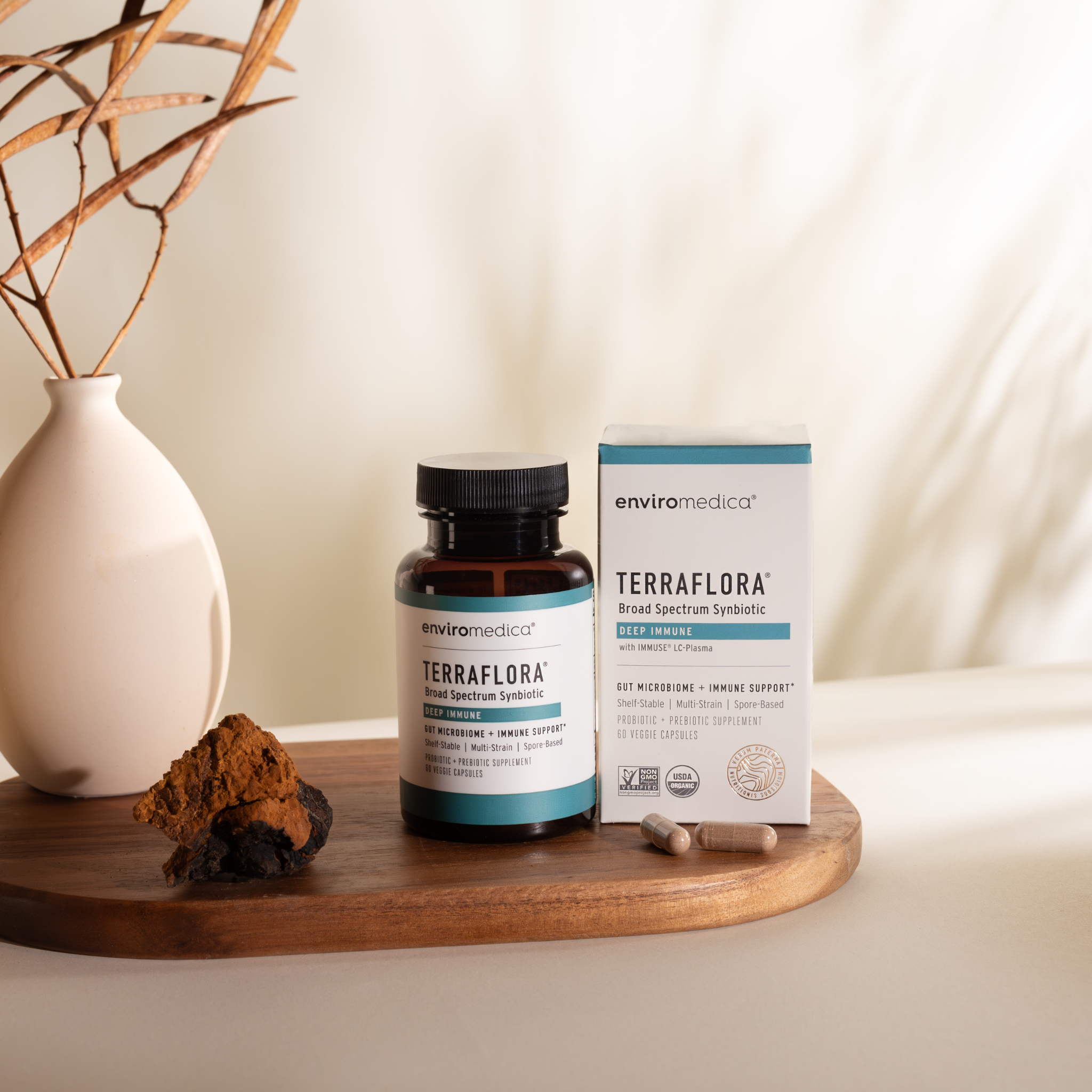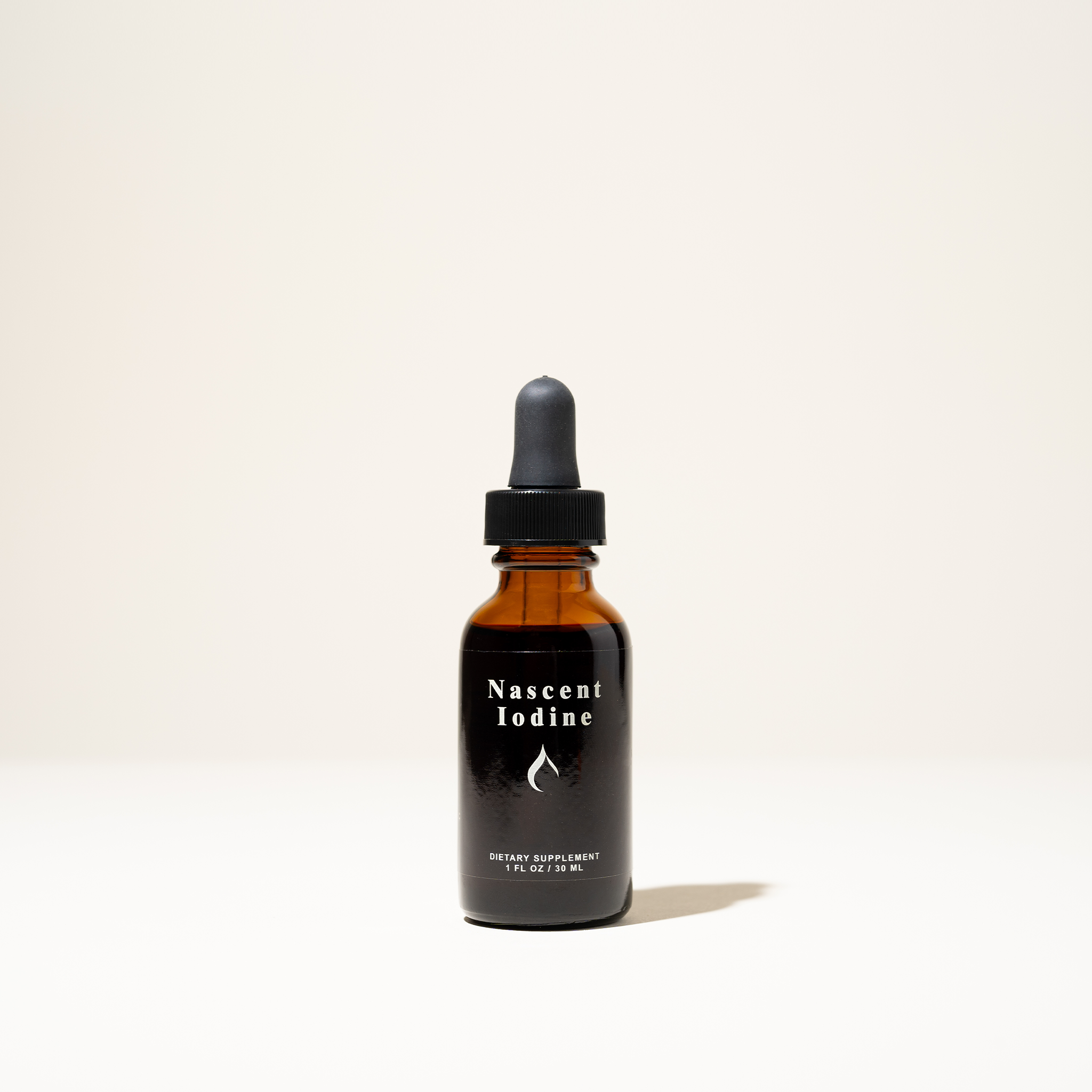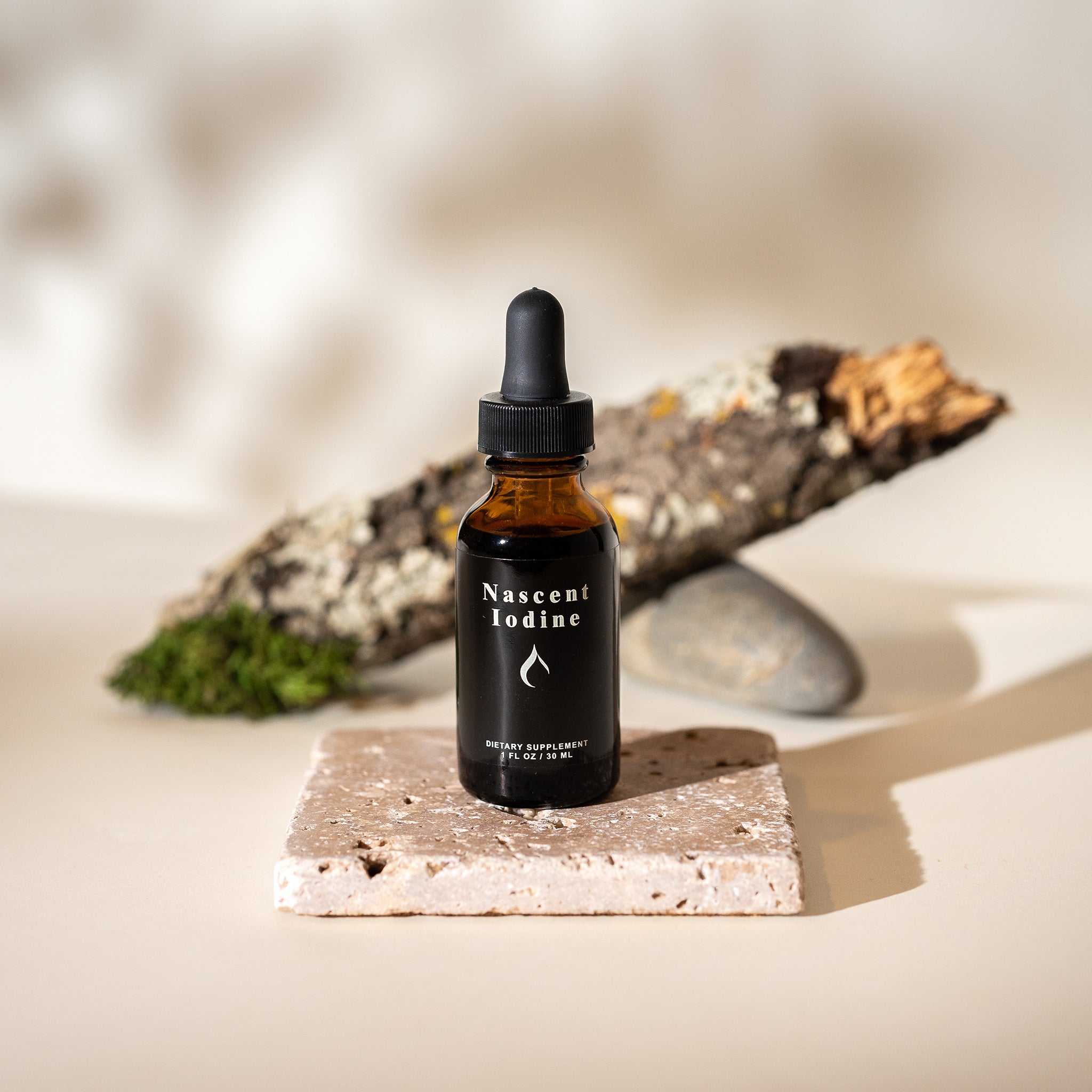Natural summer skincare
Sunscreen is typically seen as the go-to method of protection against sunburns and skin cancer. However, most conventional sunscreens block our ability to absorb Vitamin D, a necessary nutrient for many functions in the body. Sunscreen also contains chemicals that can penetrate the skin and disrupt hormones. There are natural ways, through nutrition changes and supplements, to protect our skin yet still get the sunshine we need. This article includes dietary recommendations, lifestyle changes and best food sources to up your skin protection in the hot summer sun!
The truth about sunscreen
Sunscreens contain several different chemicals that can easily penetrate the skin and enter the bloodstream. Studies have shown that many sunscreens contain endocrine disrupting chemicals.1 Endocrine disruptors (EDs), also known as xenoestrogens, are substances that mimic estrogens. They are capable of interacting with different systems in the body, and altering normal hormonal regulation. The reproductive system is often the most affected.
According to the Environmental Working Group (EWG):
Active ingredients in sunscreens come in two forms, mineral and chemical filters. Each uses a different mechanism for protecting skin and maintaining stability in sunlight. Each may pose hazards to human health. The most common sunscreens on the market contain chemical filters. These products typically include a combination of two to six of these active ingredients: oxybenzone, avobenzone, octisalate, octocrylene, homosalate and octinoxate. Mineral sunscreens use zinc oxide and/or titanium dioxide. A handful of products combine zinc oxide with chemical filters.”
The EWG rates sunscreen components based on their level of toxicity in the body. Each component is given a hazard rating based on skin penetration, hormone disruption, rate of skin allergies and other concerns. Most ingredients in sunscreen have some form of toxicity in the body. According to EWG, “The most problematic of the sunscreen chemicals used in the U.S. is oxybenzone, found in nearly every chemical sunscreen. EWG recommends that consumers avoid this chemical because it can penetrate the skin, cause allergic skin reactions and may disrupt hormones” Based on a sampling of more than 2500 children and adults,2 oxybenzone is found in more than 96% of the US population.
Sunscreen also blocks Vitamin D. In The Purely Paleo Skincare Guide, Liz Wolf states:
Sunshine is a perfect source of a critical vitamin! Sunshine stimulates your body to create Vitamin D from the cholesterol waiting below the surface of your skin. While you can take vitamin D supplements, the type of Vitamin D generated from the sun’s action on your skin is of a different form: it’s Vitamin D Sulfate. Stephanie Seneff, a MIT researcher, has stated that Vitamin D Sulfate possesses unique health-promoting properties. Vitamin D is critical for immune health and skin health– it even functions as a sort of internal, natural antibiotic. It can help immensely with psoriasis and acne, as well as total health.”
Preventing sunburn naturally
It is imperative that we get some sunshine, but we also do not want to burn.
Do you burn easily? This may be a sign of an essential fatty acid deficiency. Getting a good balance of Omega 6 to Omega 3 fatty acids helps to keep the body in an inflamed state. When fatty acids are balanced in the body, the body is able to resist burning as quickly, and more sunlight can be taken in.
Dietary alternatives to sunscreen
What are some natural ways to take care of your skin over the summer months without the use of these harsh chemicals?
One way to protect your skin during the summer months is through dietary changes. There are some necessary nutrients that we can consume that help protect the skin. Having good antioxidants in the diet can help with natural sunburn resistance. Be sure to consume foods that are naturally high in antioxidants like vitamin C (found in many fruits) and Vitamin E (found in nuts and seeds). According to Katie The Wellness Mama:
A large part of natural sun protection is eating an anti-inflammatory diet.” Katie suggests to avoid sunburn: avoid inflammatory foods like processed foods, vegetable oils, grains, and sugars. She suggests increasing healthy saturated fats, foods rich in omega-3 fatty acids, lots of leafy greens, consume fermented cod liver oil, and take 2+ TBS of tomato paste daily.”
What are some supplements that may help our skin over the summer months?
One important supplement for protecting skin during the summer months is magnesium. Magnesium is a necessary mineral for several functions in the body.
According to Dr. Mark Hyman:
Think of magnesium as the relaxation mineral. Anything that is tight, irritable, crampy, and stiff — whether it is a body part or even a mood — is a sign of magnesium deficiency.”
This critical mineral is actually responsible for over 300 enzyme reactions and is found in all of your tissues — but mainly in your bones, muscles, and brain. You must have it for your cells to make energy, for many different chemical pumps to work, to stabilize membranes, and to help muscles relax.”
Do you squint or require sunglasses on sunny days? One symptom of low magnesium is increased sun sensitivity. Do you wear sunscreen or completely avoid sun exposure? Sun exposure is actually your main source of vitamin D, which is absolutely necessary for magnesium absorption. Sun exposure is the best way to increase Vitamin D and therefore absorb the critical mineral magnesium. Did you get a sunburn? Topical magnesium has been shown in studies to strengthen the outer barrier of the skin and accelerate healing in the epidermis.3
Another supplement that is great to take during the summer months is Fermented Cod Liver Oil (FCLO). FCLO contains naturally high levels of vitamin A and D, cofactors to mineral absorption. Vitamin A also helps to protect the skin against burning, yet still get adequate sunlight for Vitamin D absorption. According to Saurat, JH, 2001,4 Vitamin A has an adaptive response to UV exposure that can help prevent skin cancer and aging related to sun exposure. Increasing Vitamin A is a great way to help protect the skin over the summer months.
Natural sunscreen
What are some natural alternatives to sunscreen that may help protect the skin during the summer without all the chemicals?
- Carrot Seed Oil: Carrot seed contains a high amount of Vitamin A and beta carotene. Both of these ingredients are antioxidants, nutrients that shield the skin from oxidative particles known as free radicals. Carrot seed has a natural SPF of 38-40. It has antiseptic properties which helps prevent and heal infection. Carrot Seed also helps with skin irritation and helps to rejuvenate the skin.
- Coconut Oil: Coconut oil is high in antioxidants that help to prevent burning and oxidative damage. It can make a great base for homemade sunscreens. Consumption of coconut oil is also important, as it helps to protect skin from the inside out. Polyunsaturated oils are rancid and therefore oxidize easily. Consuming these oils rather than protective saturated fats like coconut oil, can contribute to burning. Coconut oil also makes for a great skin moisturizer.
- Red Raspberry Seed Oil: According to Primal Life Organics founder Trina, “Red raspberry seed oil has a natural SPF of 28-50, and is one of the only natural oils that protects against both UVA and UVB rays. In fact, the SPF of Red Raspberry Seed Oil has been found to be equal to that of titanium dioxide, an ingredient commonly used in commercial sunscreens. It is high in anti-oxidants and has an anti-inflammatory effect; it can reduce the pain and inflammation associated with sunburn. It has been found to make abnormal skin cells self-terminate – essentially stopping potential tumors and cancers from getting established”
Final tips for summer skin care
We asked Kelly Ross, owner of TastyFace Organics paleo skincare line for some tips for summer skincare:
It’s still important to keep skin moisturized, from the inside out. Be sure to stay hydrated all summer long. Keep moisturizing with toxin free skincare. You might notice with humidity you don’t need as much, so simply dial back amounts. Avoid conventional sunscreens, and instead opt for non-nano zinc based sunscreens with very clean ingredients. Protect your scalp, eyes, and face by embracing hats!”
As the summer season approaches, we are bombarded with the marketing of chemical based sunscreens. We hope we’ve been able to provide you with some insight into natural alternatives that can help decrease the risk of burning yet still absorb necessary nutrients that require sun exposure. You can limit your exposure to the sun and prevent burning by covering up during peak “sunburn” hours of 10am-4pm. Wear rimmed hats, long sleeved swim-shirts and bathing suit coverups during those peak hours.
About the Author:
Kathryn is a functional nutritional therapist, author, editor, and mama of two boys. She enjoys spending her free time out in nature-hiking and fishing. You can find her at www.primalmusings.com and her book “Forties on Fire” can be found on Amazon.
References
- 1. Osvaldo, JP & Carbone, S. 2013. Evidence of reproductive disruption associated with neuroendocrine changes induced by UV-B filters, phthalates and nonylphenol during sexual maturation in rats of both gender. Toxicology, Vol 311, Issues 1-2, pp 41-51. [Science Direct
- 2. Calafat AM, Wong L-Y, Ye X, Reidy JA, Needham LL. 2008. Concentration of the sunscreen agent, benzophenone-3, in residents of the United States: National Health and Nutrition Examination Survey 2003-2004. Environ Health Perspect 116(7): 893-897. [Springer
- 3. Denda M, Katagiri, C, Hirao, T, Maruyana, N, Takahashi, M, 1999. Some magnesium salts and a mixture of magnesium and calcium salts accelerate skin barrier recovery. Archives of Dermatological Research. Vol. 291, Issue 10 pp 560-563. [PubMed
- 4. Saurat, JH, 2001. Skin, sun, and Vitamin A: from aging to cancer. Journal of Dermatology, Vol 11 595-598.
